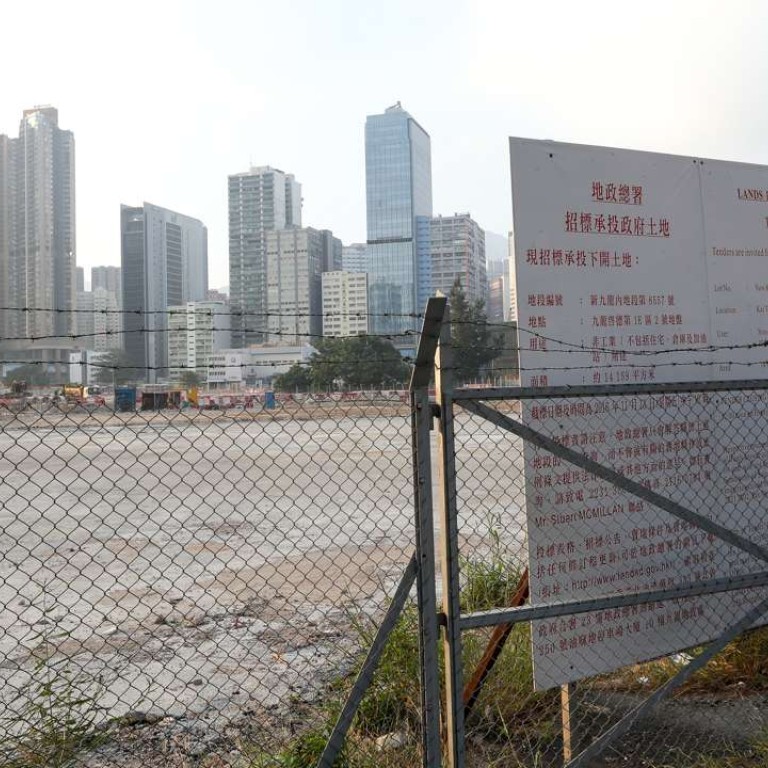
Hong Kong developers face tougher competition for land sites, says JLL
Residential property prices seen rising 5 per cent in 2017 as land costs escalate, JLL analyst says
Hong Kong developers are finding it increasingly difficult to keep adding to their supply of land as their mainland counterparts push into the city’s property market, says Jones Lang LaSalle (JLL).
Mainland developers bid on around 62 per cent of the residential sites sold via government tender so far this year, up from 53 per cent in 2015. They won around 24 per cent of the sites in 2016, on par with the whole of last year.
“The local developers, they’re backing away,” Joseph Tsang, managing director and head of capital markets at JLL, told the Post. “I don’t mean they don’t put in a bid, they still put in a bid, but ... it’s all gone to the mainlanders,” he said, referring to record prices paid recently for land sites, including one in Kai Tak.
Hong Kong companies are bidding on land based on market expectations, but the presence of mainland developers has seen 10 out of 13 residential sites sold in the second half of 2016 exceed forecasts.
Earlier in November, a government land site in Kai Tak was sold to Chinese conglomerate HNA Group for a record-breaking HK$8.84 billion, more than double the price paid for similar site in 2014.
Hong Kong property and casino tycoon Lui Che-woo lost out on the site, telling the Financial Times it is difficult for local companies to match mainland funds.
“Mainland companies have the ability to do it, but we don’t,” he was quoted as saying.
Hong Kong developers, under pressure from construction costs and rebates on the recently increased stamp duty, are opting to focus on projects in the New Territories and near stops on the Mass Transit Railway (MTR).
Intensified competition for land will inevitably raise residential prices, which are expected to increase by 5 per cent in 2017, JLL said.
While mainland developers are less experienced than local ones, they are more aggressive because of depreciating yuan, which fell recently to eight and a half year lows against the US dollar, according to Tsang. “They want to get the money out from China as soon as possible,” he said.
In addition, there is a desire to diversify assets away from mainland cities and to capitalise on supply constraints in the Hong Kong market, according to JLL.
But local developers are stepping up their game to match companies from the mainland.
Hong Kong developers secured 19 out of 21 sites available in the seven-month period ending in November, versus 13 out of 20 of the sites in the last financial year.
Looking forward, there may be more joint ventures between local and mainland developers, with companies from China bringing abundant capital and those from Hong Kong backed by experience, according to Tsang.

